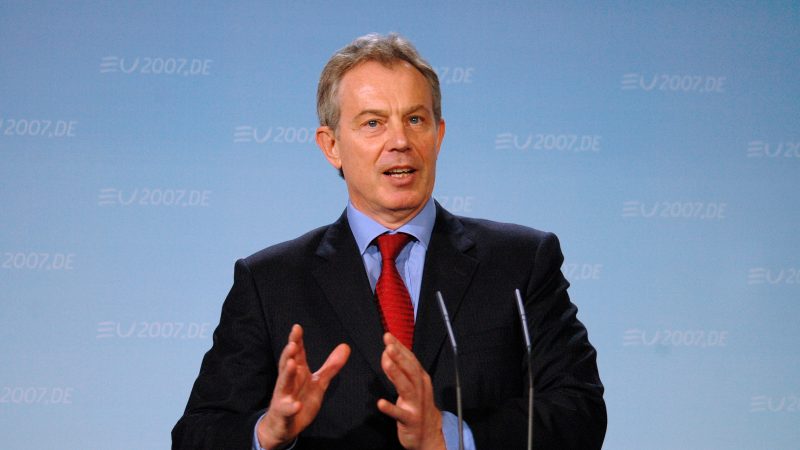
Twenty years on, Labour’s discussion of the Iraq War is curious and worrying in equal measure. The disaster often seems to have been absorbed into a wider factional politics in which positions on the war are more likely to be shaped by contemporary assessments of New Labour, Corbyn’s Labour and Starmer’s Labour than by lessons from the worst foreign policy disaster in our lifetimes. But 20 years ago, many firm supporters of New Labour were alarmed and appalled. More than half of Labour backbenchers voted against (and there were also abstainers and ministers reluctant to collapse a government otherwise doing good things). My own resignation speech talked of a daily pride in our achievements.
In truth, as a party, we have never really addressed the trauma. As leaders changed and times moved on there was a sense of putting it all behind us without really asking what it meant. This no longer seems possible. The architects of the UK’s involvement in the Iraq War have very largely been rehabilitated in British politics. Tony Blair is widely presented as an authoritative elder statesman, most recently publishing a report on technology with William Hague, one of the Conservatives’ most enthusiastic war supporters (the report itself is politically significant, suggesting that our challenges are technological rather than political).
Blair shaped New Labour and, unlike most of our leaders, won elections, so it is worth understanding how he did it. Many talented people worked for him and guilt by association is never justified. On the other hand, Iraq happened because Blair had views of how government should be conducted and on Britain’s place in the world that were dangerously flawed. It is essential we understand why, and even more important to ensure that they are not taken up again now. New Labour’s achievements can be respected without believing that Blair was anything but dangerously incompetent on both international affairs and British interests and in his conduct of government.
Blair wanted Britain to be a leading global force. At the outset, interventions in Kosovo and Sierra Leone were reasonably successful. The UK contributed to shaping the UN doctrine on the Responsibility to Protect. But Blair also came to associate Britain’s global power with our subservience to US interests and foreign policy. The author and commentator Steve Richards has even suggested recently that Blair’s strategic relationship with the USA was driven primarily by fear that the Conservatives would get closer to Bush than Labour. Whether or not that is true, the promise of unqualified support of the USA led Blair to commit the UK to a war that neither garnered sufficient international support nor was justified by the facts.
I warned at the time that the invasion would “turn many parts of the world against us, undermine friendly governments, fuel terrorism and those who will join it in the future and make it more difficult to sustain international action against common problems”. As many people have recently pointed out, that is exactly what happened. We can see its legacy today when much of the Global South declines to give the unequivocal support we would have hoped for to Ukraine and the West.
It is also forgotten that Blair wanted the UK to provide an alternative focus leadership to France and Germany within the EU. Aiming to build an alliance with the accession states of eastern Europe, the UK became the only country not to have transitional measures to control the flow of A8 new migrants. This, more than any other factor, is what alienated voters and is why the UK is no longer in the EU. Both foreign policy misjudgements fuelled the mistrust between voters and politicians that characterises politics today. In short, Blair’s hubristic aspirations for global leadership lead only to damaged internationalism, isolation within Europe and a political, economic and military weakening. Today, he moans that US Presidents may not now call Britain first. Not only is it hard to believe that so many people died just to ensure that a US President had the UK Prime Minister on speed dial, but Blair’s political legacy is a large part of the reason for the marginalisation that followed.
Policy judgement is only half of the problem. Iraq could not have happened without a wider degradation of the proper conduct of government. Cabinet government was displaced by the informality of sofa discussions. Inexperienced and unqualified special advisers undermined responsible ministers. Civil servants were encouraged to provide the advice the government wanted (very similar dynamics were in place around A8 migration). Normal checks and balances, including proper legislative scrutiny by parliament, were seen as an obstacle to getting things done. We rightly react with horror at Boris Johnson’s disregard for honesty and proper conduct, but the roots of such behaviour did not start in the past few years.
There is nothing wrong with wanting Britain to be an influence for good. But Iraq teaches us that there are no short cuts, either of principle or practice, that will ensure that happens. As the next Labour government faces a very different world, those lessons must be learned.




More from LabourList
‘I was wrong on the doorstep in Gorton and Denton. I, and all of us, need to listen properly’
‘Why solidarity with Ukraine still matters’
‘Ukraine is Europe’s frontier – and Labour must stay resolute in its defence’